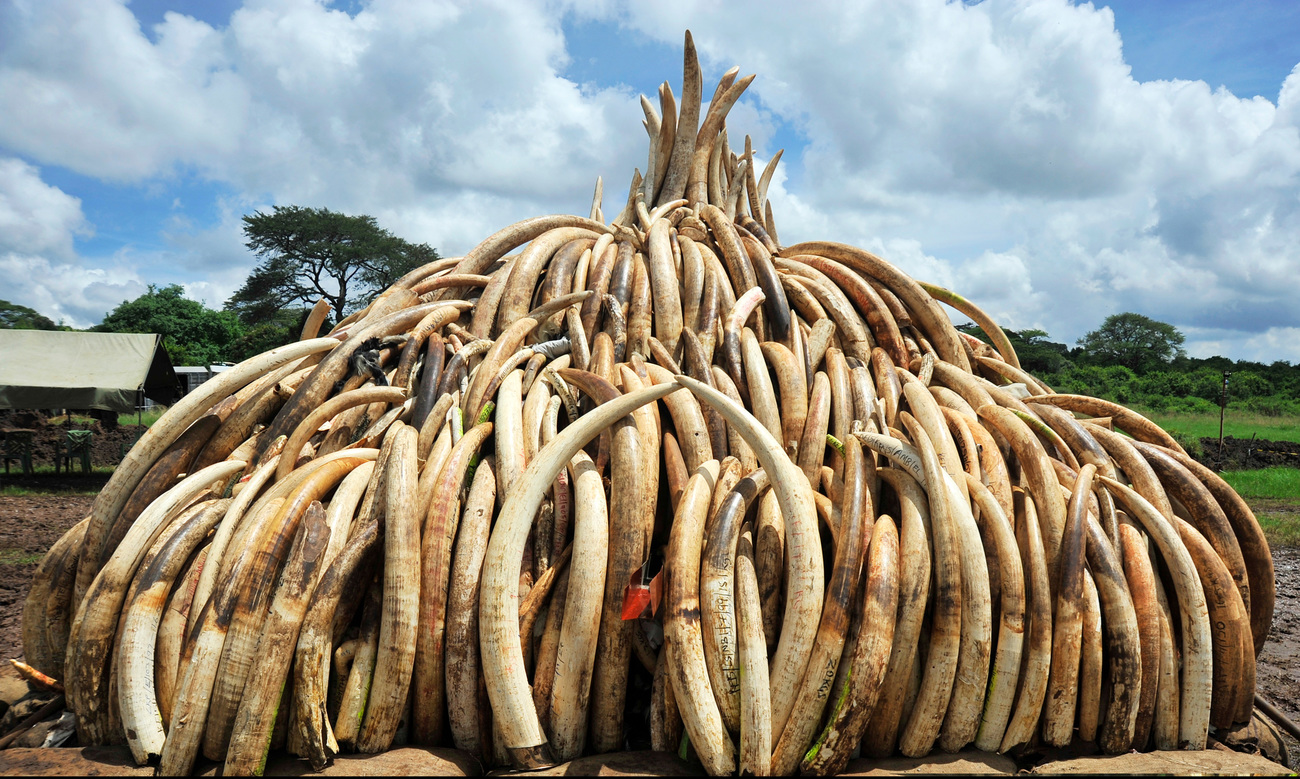Wildlife Crime Prevention - Europe
The European Union is widely considered to be the third largest destination for illegal wildlifeNGOs demand a ban on EU ivory trade
NGOs demand a ban on EU ivory trade

On Friday 8 December, the final day of the public consultation on the EU ivory trade, the European Commission hosted a meeting with stakeholders to hear their views on the action needed for the EU to effectively combat ivory trafficking. Elephants are facing their worst crisis in decades due to poaching for their ivory. Populations are thought to be falling by about 8 percent annually and at least 20,000 African elephants continue to be killed each year.
During the stakeholder meeting, NGOs explained to the Commission the EU’s contribution to the global ivory trade as a transit hub, consumer market and major exporter, and the damage that the trade causes to communities:
- EU exports of ivory stimulate demand worldwide, particularly in the main markets for illegal ivory in Asia;
- The legalised domestic market inside the EU legitimises ivory as a desirable product to trade and provides a cover for laundering illegal ivory;
- The global ivory trade involves transnational organised crime networks, costs the lives of rangers dedicated to protecting wildlife, and is damaging communities and the economies of developing countries (for example, through lost tourism revenue).
Therefore, conservation and animal protection NGOs jointly called on the EU to comprehensively and permanently ban external and domestic trade in raw and worked ivory, allowing only minimum and tightly worded exemptions for museums, musical instruments and antique items containing very minor amounts of ivory both in weight and percentage.
The ivory trade is a global problem, and maintaining any ivory markets encourages demand for poached ivory as well as providing a cover for it to be laundered. The undersigned organisations do not challenge existing private ownership or inheritance of legally obtained ivory or exchanges between museums.
There is considerable support for a closure of the EU ivory market, from the European public with over 90% of Europeans not interested in buying ivory products, from Members of the European Parliament. the majority of African elephant range states, 165 scientists from 33 countries worldwide, including from within 13 EU countries, more than 50 conservation organisations from all over the world, faith leaders, a legislator from Hong Kong, online traders such as eBay, and an auction house based in Australia which actually closed most of its trade in ivory.
The undersigned NGOs, who also submitted a joint briefing to the European Commission on the EU ivory trade, will continue to engage with the Commission and other EU institutions to push for the introduction of the tightest possible controls on EU ivory trade as a matter of urgency. A proposal from the European Commission is expected by mid-2018.
This release is endorsed by the following organisations: Born Free Foundation, David Shepherd Wildlife Foundation, Eurogroup for Animals, Environmental Investigation Agency, Humane Society International/Europe, International Fund for Animal Welfare, Pro Wildlife, Robin des Bois, Wildlife Conservation Society.
Related content
Our work can’t get done without you. Please give what you can to help animals thrive.